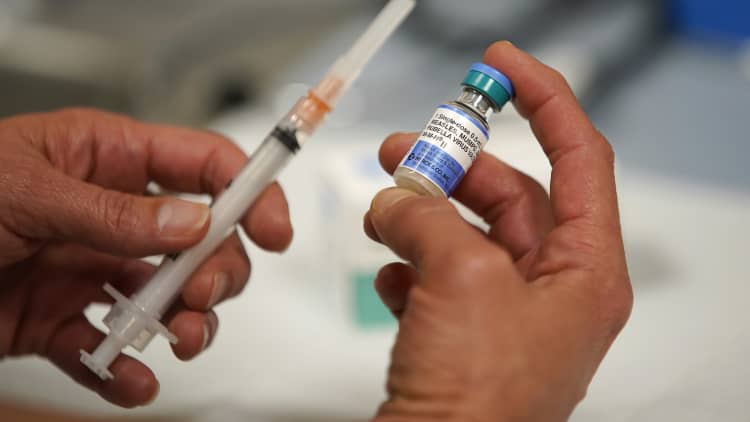Measles outbreaks in New York continued to worsen last week, bringing the year's total so far to 839 cases across 23 states — the highest number of infections since 1994, the Centers for Disease Control and Prevention said Monday.
The CDC confirmed 75 new cases of measles across the country last week. U.S. health officials blame the recent surge of cases — after saying in 2000 that the disease had been eliminated from the U.S. — to an increasing number of parents who refuse to vaccinate their children.
Of the new cases last week, 66 were reported in New York state; of those, 41 were in New York City and 25 in nearby Rockland County. Public health officials have been battling two outbreaks since the fall. New York City is threatening to issue $1,000 fines to people who live in neighborhoods with the worst outbreaks and refuse to get their children vaccinated. City health officials have already issued citations to 84 people for refusing to comply with the order.
Measles is highly contagious yet preventable with a vaccine for measles, mumps and rubella. More parents are refusing to vaccinate their children, sometimes based on false information that vaccines cause autism.
The disease spreads quickly and easily among people who aren't immunized, leaving communities with high rates of people who aren't protected particularly vulnerable.
For more on investing in health-care innovation, click here to join CNBC at our Healthy Returns Summit in New York City on May 21.
Measles starts with a fever, runny nose, cough, red eyes and sore throat. It then causes a rash. Some people develop severe complications, such as pneumonia or brain swelling. Children younger than 5 and adults older than 20 are more likely to experience complications, the CDC says.
The disease is still common in other countries. Unvaccinated people can pick up the disease while traveling and bring it back to the U.S., where they can spread it to other unvaccinated people.



